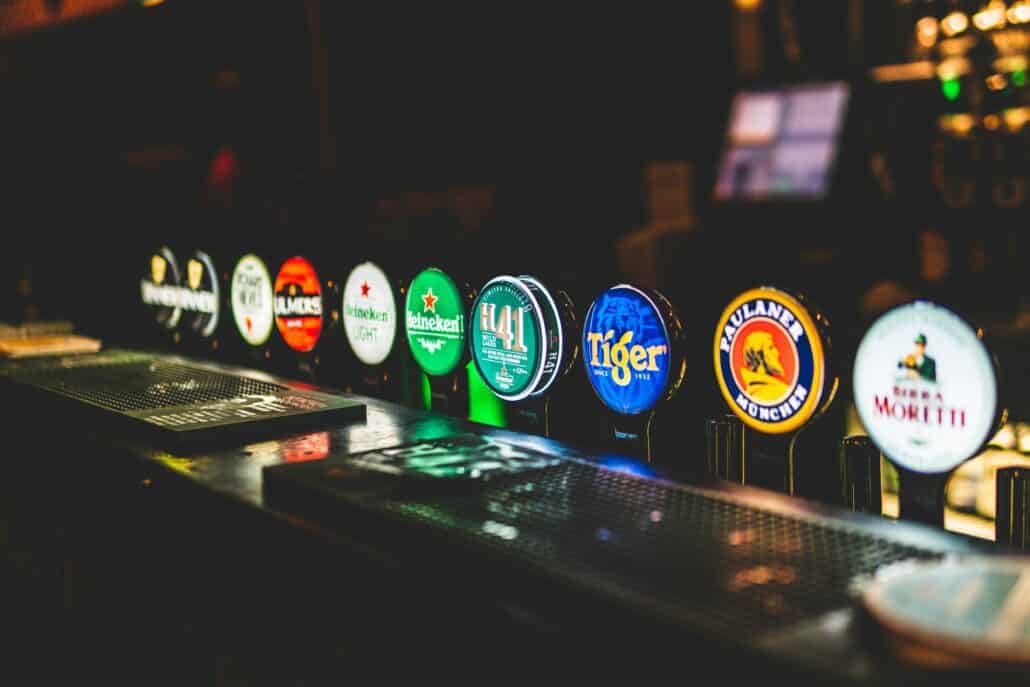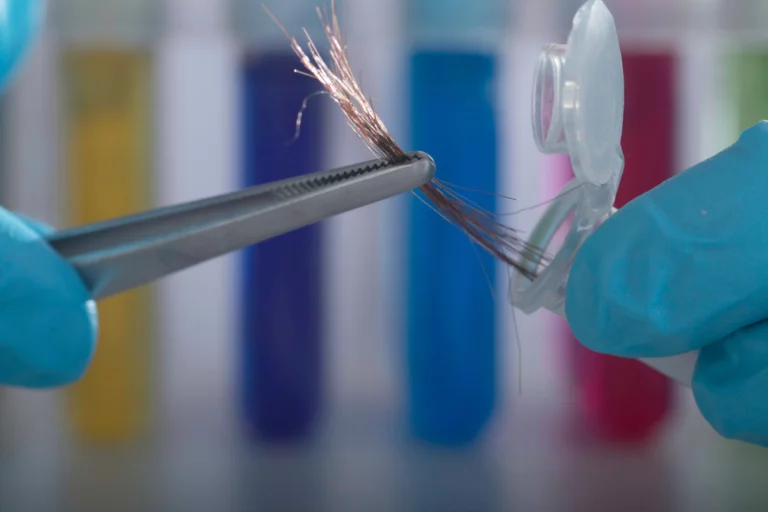How long does it take to become an alcoholic? Alcohol use disorder, or alcoholism, is a chronic condition marked by an inability to manage alcohol consumption despite harmful consequences.
Understanding how long it takes to become an alcoholic and the factors that influence this transition from casual drinking to dependence is crucial.
So, how long does it take to become an alcoholic? This knowledge helps in recognizing early signs of alcohol dependency, facilitating timely intervention and recovery. In this article, we explore the journey to alcohol addiction, the influencing factors, and the pathways to rehabilitation.

How Long Does it Take to Become an Alcoholic? Understanding the Factors
The progression to alcohol use disorder is complex, driven by various factors that influence how quickly someone might develop a dependency. Let’s dive deeper into the factors that shed light on how long does it take to become an alcoholic.
Genetic Predisposition
When examining how long does it take to become an alcoholic, research clearly shows that genetics play a fundamental role in determining both susceptibility and progression of alcohol use disorder (AUD). The question of how long does it take to become an alcoholic doesn’t have a one-size-fits-all answer, but genetic predisposition can dramatically accelerate the timeline for some individuals compared to others.
Extensive scientific evidence, including twin and adoption studies, confirms that genetics account for 40-60% of a person’s risk for developing alcoholism. This means that for those with a strong family history of AUD – particularly first-degree relatives like parents or siblings – the path from casual drinking to full-blown addiction may be significantly shorter.
In fact, these individuals face three to four times greater risk of developing alcohol dependence compared to those without genetic vulnerability. When considering how long does it take to become an alcoholic, this genetic component helps explain why some people progress to addiction much faster than others.
The genetic influence on how long it takes to become an alcoholic operates through multiple biological mechanisms. Variations in alcohol-metabolizing enzymes like ADH and ALDH significantly impact drinking patterns. Those with genes causing slower alcohol metabolism often experience unpleasant effects (flushing, nausea) that may protect against excessive consumption.
Conversely, individuals with genetic variants enabling faster metabolism may drink more heavily with fewer immediate consequences, potentially shortening the timeline for developing dependence.
Neurotransmitter genetics also play a crucial role in determining how long does it take to become an alcoholic. Inherited differences in dopamine, serotonin and GABA systems can affect:
- How intensely alcohol rewards the brain
- An individual’s ability to control impulses
- Stress response mechanisms
For example, someone born with naturally low dopamine receptor availability may require more alcohol to feel pleasure, creating a biological basis for rapid tolerance development and accelerated progression to addiction. This helps explain why how long it takes to become an alcoholic varies so much between individuals.
While genetics powerfully influence how long does it take to become an alcoholic, they don’t act in isolation. Environmental factors like:
- Peer pressure
- Early alcohol exposure
- Trauma history
- Stress levels
…interact with genetic risk to either accelerate or delay the onset of alcohol dependence. Someone with high genetic risk plus heavy drinking patterns might develop AUD within months, while another person with protective factors might drink for years without becoming dependent.
Understanding these genetic influences is crucial when considering how long does it take to become an alcoholic.

Frequency and Volume of Alcohol Consumption
The question “how long does it take to become an alcoholic?” does not have a single definitive answer, as the timeline for developing alcohol use disorder (AUD) varies widely depending on individual factors such as genetics, drinking habits, and environmental influences.
However, research indicates that increased frequency and volume of alcohol intake significantly raise the risk of addiction, accelerating the progression from casual drinking to dependency.
Regular binge drinking—defined as consuming five or more drinks for men (four or more for women) in about two hours—or sustained high-level alcohol consumption can dramatically expedite the onset of alcohol dependence.
This happens because frequent exposure to large amounts of alcohol alters brain chemistry, leading to tolerance (needing more alcohol to achieve the same effects) and withdrawal symptoms when not drinking. So, how long does it take to become an alcoholic? For some individuals, particularly those with a genetic predisposition, heavy drinking patterns can lead to dependency within just a few months. Others may develop AUD over several years of consistent misuse.
Studies suggest that daily heavy drinking (such as consuming three or more drinks per day for women or four or more for men) can lead to physical dependence in as little as six months to two years. However, binge drinkers who consume large quantities in short bursts—even if not daily—may also develop alcohol use disorder relatively quickly due to the strain this places on the brain’s reward system.
Another critical factor in determining how long it takes to become an alcoholic is the speed at which alcohol disrupts neurotransmitter balance, particularly dopamine and GABA.
Chronic alcohol use dulls the brain’s natural reward pathways, making it harder to feel pleasure without alcohol and reinforcing compulsive drinking behaviors. Over time, this neuroadaptation makes quitting increasingly difficult, solidifying dependency.
Ultimately, while the exact timeline differs for each person, one thing remains clear: the more frequently and heavily someone drinks, the faster they risk developing alcoholism.
Understanding how long it takes to become an alcoholic can help individuals recognize early warning signs and seek help before dependence takes hold. Prevention strategies, such as moderating intake and avoiding binge drinking, are crucial in reducing the risk of rapid progression to alcohol use disorder.

Psychological Factors
Mental health issues such as depression, anxiety, PTSD, and unresolved trauma are among the most significant contributors to the development of alcoholism.
Many individuals struggling with emotional distress turn to alcohol as a form of self-medication, seeking temporary relief from symptoms like sadness, panic, or intrusive memories. However, this coping mechanism can quickly spiral into dependency, raising the critical question: how long does it take to become an alcoholic when mental health is a driving factor?
Research shows that people with untreated mental health conditions are at a much higher risk of developing alcohol use disorder (AUD) at an accelerated rate. Since alcohol initially provides a depressant effect that dulls emotional pain, those suffering from anxiety or depression may begin drinking more frequently and in larger quantities to sustain relief.
Over time, the brain adapts to the presence of alcohol, leading to increased tolerance—meaning more alcohol is needed to achieve the same numbing effect. This cycle significantly shortens the timeline for dependency.
So, how long does it take to become an alcoholic for someone using alcohol to cope with psychological distress? In some cases, dependence can develop in just a few months, particularly if drinking becomes a daily habit.
The relationship between mental health and alcoholism is often bidirectional—while conditions like depression and anxiety can lead to excessive drinking, chronic alcohol use also worsens these disorders. For example, alcohol disrupts serotonin and dopamine levels, which can deepen depressive symptoms and increase cravings, creating a vicious cycle.
Trauma survivors, especially those with PTSD, may rely on alcohol to suppress flashbacks or hyperarousal, but this coping strategy often backfires, leading to quicker addiction. How long does it take to become an alcoholic for someone with PTSD? Studies suggest that trauma survivors may develop problematic drinking patterns faster than the general population, sometimes within a year of regular use.
Another critical factor is the severity of the underlying mental health condition. Individuals with severe depression or chronic anxiety may progress from casual drinking to full-blown alcoholism in a matter of months, especially if they lack healthier coping mechanisms.
Additionally, those with co-occurring disorders (such as bipolar disorder or borderline personality disorder) face an even higher risk of rapid alcohol dependency due to heightened impulsivity and emotional instability.
Given these risks, it’s essential to recognize the warning signs early. If someone is drinking to manage stress, sleep, or emotional pain, they may be on a fast track to addiction.
How long does it take to become an alcoholic when mental health is involved? While the exact timeline varies, the combination of psychological distress and frequent alcohol use can drastically shorten the path to dependency—sometimes in as little as six months to a year.
Treatment for alcohol use disorder in individuals with mental health conditions must address both issues simultaneously. Integrated therapies, such as cognitive-behavioral therapy (CBT), medication-assisted treatment (MAT), and trauma-informed care, have been shown to be most effective in breaking the cycle of self-medication and preventing relapse.
Understanding how long it takes to become an alcoholic under these circumstances highlights the importance of early intervention and holistic support for those struggling with both mental health and substance use.
Environmental Influences
The environment plays a vital role in alcohol consumption habits. Sociocultural norms, peer influences, and stressors such as work or family problems can lead to increased alcohol use and potential dependency.
Signs of Alcohol Dependency
Recognizing early signs of alcohol dependency is crucial for timely intervention:
- Increasing tolerance, requiring more alcohol to achieve the same effects.
- Experiencing withdrawal symptoms like shaking or nausea when not drinking.
- Neglecting responsibilities and relationships due to drinking.
- Inability to control or reduce alcohol intake despite the desire to do so.
How Long Does It Take to Become an Alcoholic: Timeline to Dependency
While there is no fixed timeline, understanding typical patterns can be helpful.
Initial Stage: Casual or Social Drinking
Initial stages often involve moderate or social drinking, with minimal disruption to daily life.
Increased Consumption: Tolerance Development
Over time, alcohol intake may rise to achieve desired effects, resulting in increased tolerance. This stage’s duration varies based on personal and environmental factors.
Dependent Stage: Problematic Drinking Habits
Heightened tolerance and regular consumption can lead to dependency, with individuals finding it hard to function without alcohol and experiencing withdrawal symptoms.
Chronic Stage: Alcohol Use Disorder
At this stage, individuals struggle to control their drinking despite adverse health and lifestyle impacts. Professional intervention is often needed for effective management.

FAQs About Alcoholism
What is the difference between habitual drinking and alcoholism?
Habitual drinking involves regular alcohol consumption, which doesn’t always lead to dependency. However, when it starts affecting daily life and cannot be controlled, it becomes alcoholism.
How does age affect the development of alcoholism?
Younger individuals, especially adolescents, are at higher risk due to ongoing brain development. Early exposure to alcohol increases the likelihood of dependency.
Can alcoholism be treated successfully?
Yes, alcoholism is treatable with detoxification, therapy, support groups, and lifestyle changes helping individuals achieve and maintain sobriety. Explore our treatment options for successful recovery pathways.
Understanding how long it takes to become an alcoholic involves complex interactions of genetic, psychological, and environmental factors.
While each person’s experience is unique, recognizing dependency signs early enables timely intervention and treatment. For support in overcoming alcohol dependency, professional guidance and resources are available.
How Long Does it Take to Become an Alcoholic? Take the First Step Toward Recovery
At Asheville Detox Center, we understand that battling addiction requires an empathetic and personalized approach. If you have asked yourself, “how long does it take to become an alcoholic?” it might be time to consider how alcohol has negatively impacted your life.
If you or a loved one are in need of medical detox services for alcohol addiction, contact us or call us today for immediate assistance.







